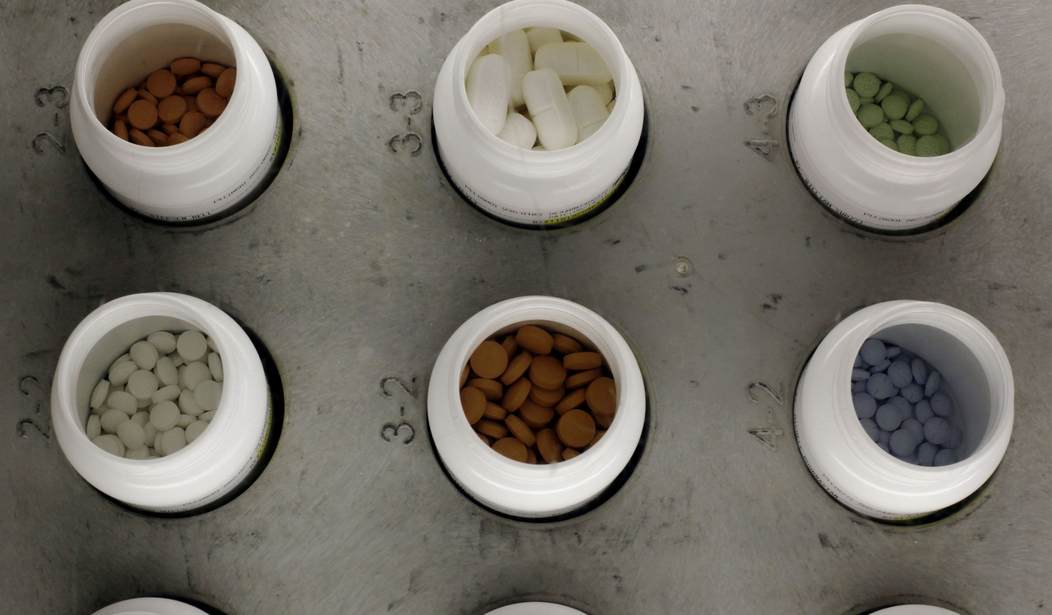Earlier this month, Congress held an oversight hearing for one of the biggest federal programs -- yet most Americans have never heard of it.
Congress established the 340B Drug Discount Program in 1992 to make medicines more affordable for poor Americans. Unfortunately, as lawmakers have learned, the program hasn't panned out as planned.
In the 30-plus years since its enactment, the hospital industry has systematically gamed 340B. Today, the program scheme is little more than an enormously expensive corporate welfare scheme masquerading as a cost saving program.
The flagrant abuse of a well-intentioned initiative is not merely a waste of public resources. It's a disservice to the struggling patients 340B is supposed to help. It's time for Congress to clean up this mess.
Despite its obscurity, more medicines are purchased through 340B than any other government program or initiative, aside from Medicare Part D. Yet, unlike the Medicare drug benefit, 340B has utterly failed to fulfill its intended purpose.
The problem has to do with the program's basic design. In its current form, 340B requires drug companies to provide enormous reductions in the price of prescription medicines for so-called "safety-net" providers. These are hospitals, clinics, and other healthcare facilities that disproportionately care for low-income Americans.
Lawmakers figured that 340B providers could use the savings from these discounts to provide more free charity care to poor and uninsured patients.
But unfortunately, lawmakers never actually required providers to pass their federally mandated savings on to actual patients. Instead, many hospitals and clinics realized they could buy discounted drugs, turn around and mark them up to fully insured patients, and pocket the difference.
Recommended
Paradoxically, as a result of 340B, some patients in low-income communities now have a harder time accessing care. Consider a New York Times investigative report on how one major hospital chain, Bon Secours Mercy Health, has exploited the program.
Bon Secours routinely purchases hugely discounted medicines through 340B at one of its "covered entity" hospitals -- Richmond Community. It then charged insurers full-price and reinvested the difference into its hospitals in wealthier areas -- while simultaneously cutting services at Richmond Community. The hospital currently lacks either an intensive care unit or a maternity ward. And yet, it still boasts the biggest profit margins of any hospital in the state -- thanks almost entirely to 340B.
Recognizing the money-making potential of 340B, providers have flocked to the program. As of 2021, the program supported more than 55,000 "covered entities." And last year alone, those entities purchased $124 billion worth of drugs -- before discounts -- through the program. That's more than double the total from 2018.
Just as bad, the compulsory discounts from drug companies have fueled rising medication prices for all patients. That's because drug firms must recoup the money they lose through 340B elsewhere in the market.
The good news is that 340B is eminently fixable. Congress should start by imposing more stringent eligibility requirements on providers to ensure they actually do serve mostly underprivileged patients. Currently, most entities don't offer more charity care than the national average.
Lawmakers could also attach strings requiring hospital chains to maintain and invest in those facilities. Finally, it should be mandatory for providers to use their 340B savings to lower the out-of-pocket drug costs for less-well-off patients.
These simple, commonsense changes would bring the reality of 340B much closer to the ideals that motivated its passage in the first place. And, thankfully, many of these policies are featured in the 340B ACCESS Act introduced in the House in May.
At a time when voters are clamoring for action on prescription drug prices, there's simply no excuse for letting 340B continue in its current form. Fixing the program right away would bring more fairness and affordability to our health sector.
Saul Anuzis is President of 60 Plus, the American Association of Senior Citizens.

























Join the conversation as a VIP Member